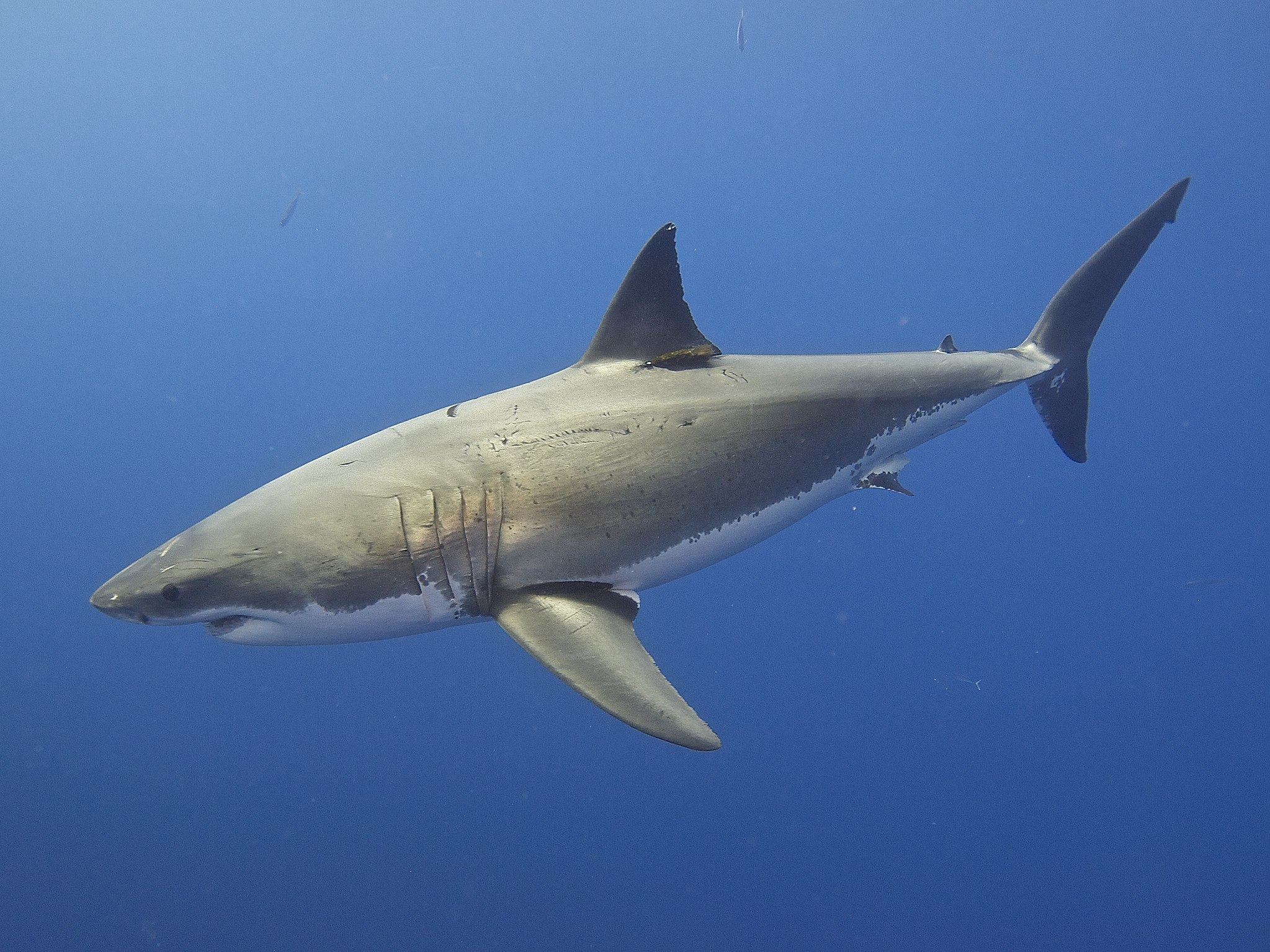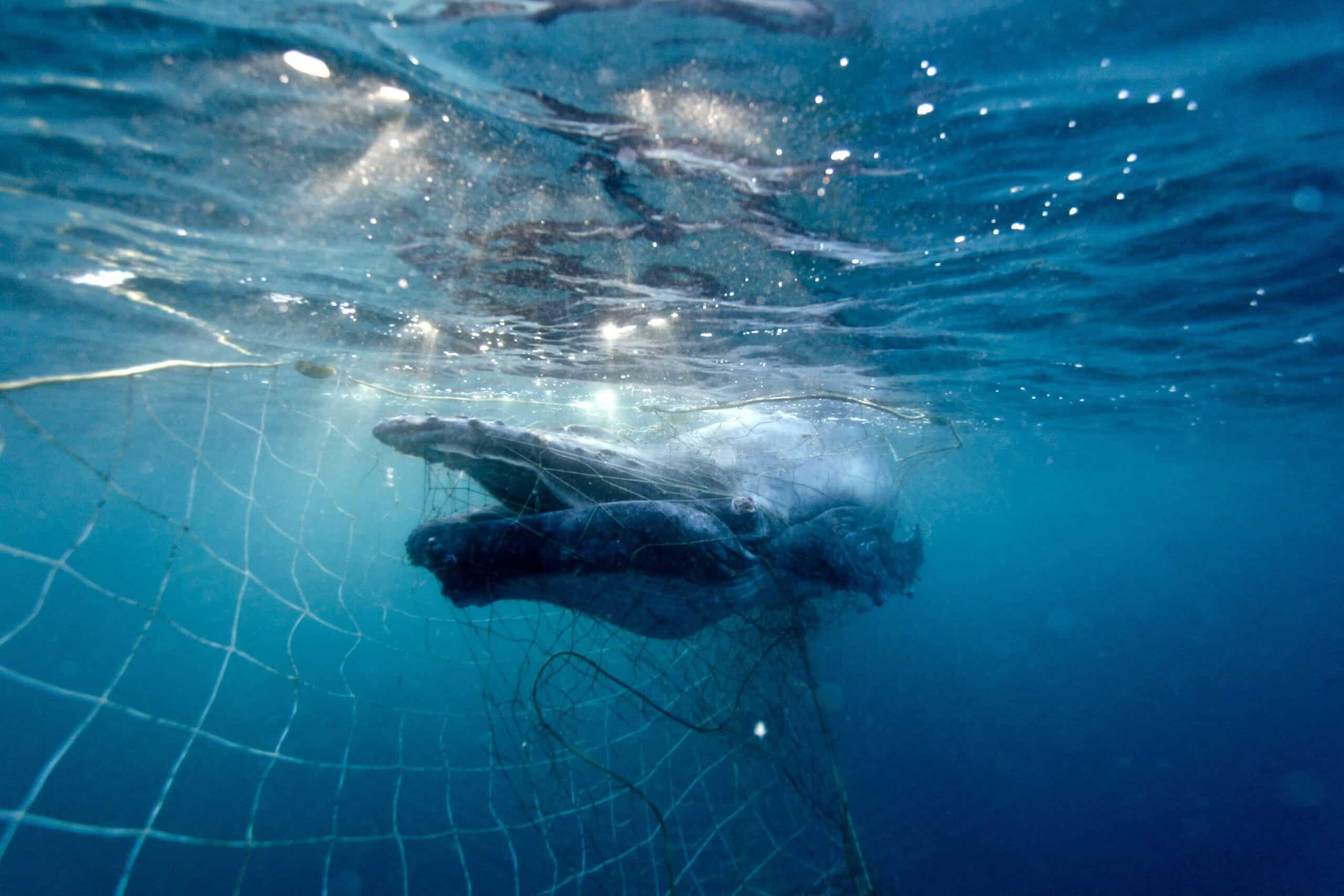Research shows that Australia’s great white sharks are highly related to each other and may consist of fewer than 500 breeding animals. SYDNEY, 24 June 2025: Latest research has found Australia’s great white shark population is much smaller than expected, increasing their vulnerability to further population threats. The population...
A dead dugong washed up on a Queensland beach with a chain wrapped around its tail has been confirmed by the Queensland Department of Fisheries to have died in a shark net and was intentionally sunk with a heavy chain by a shark net operator in accordance with Shark Control Program procedure.
The Australian Marine Conservation Society (AMCS) and Humane Society International (HSI), who have long campaigned for the removal of shark nets to improve bather safety and protect wildlife, are saddened at what is another reminder of the true cost of the outdated program.

Dr. Leonardo Guida, shark scientist at the AMCS said, “We were alerted to this awful event because it washed up on a beach and a passerby took a photo. There’s no cameras on an operator’s boat or any other form of independent observation. We only see the numbers. Scenes like this are repeated over and over again, but we only bear witness in rare cases.”
“We welcome the Queensland Government’s decision to trial drones as a first step toward improving bather and wildlife safety but this disturbing image is further evidence that they need to get the nets out now. They serve no purpose other than drowning iconic wildlife including whales, dolphins and turtles,” said Dr. Guida.
Operators employed in Queensland’s Shark Control Program are required to report the types of animals and their numbers caught in shark nets or drumlines, including whether they died or were released alive. Since 2001, the Queensland SCP has been responsible for entangling and drowning 274 dolphins, 106 turtles and 693 rays.

Earlier this year four humpback whales, including a mother and its calf were entangled in Gold Coast shark nets in the space of one month. An additional two whales were caught on shark drumlines in August on North Stradbroke Island.
Lawrence Chlebeck, marine biologist at HSI said, “When we recover from Covid, tourists from all corners of Australia and the world will come to experience Queensland’s breathtaking waters and its wildlife. But this is what they’re coming to. This is not the PR Queensland needs or wants. We must do better for people and our wildlife.”
“We have solutions. Drones are just the first step, we need to get the nets out now. Most importantly, we need both the ALP and LNP heading to the election to commit to transitioning Queensland beaches to non-lethal shark management to better protect wildlife and improve beach safety,” stated Mr. Chlebeck.
AMCS and HSI are urging the Queensland Government and all other parties to commit to transitioning the Shark Control Program non-lethal technologies, and are building public support through their national campaign, “Shark Champions”.


